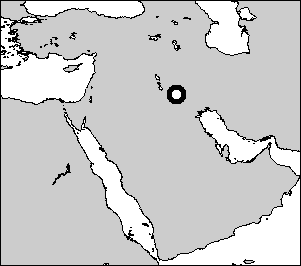
| www.CuriousTaxonomy.net |
|
The Flood in World Myth and Folklore
Middle East |
| © 2021 Mark Isaak |

The gods had decided to destroy mankind. The god Enlil warned the priest-king Ziusudra ("Long of Life") of the coming flood by speaking to a wall while Ziusudra listened at the side. He was instructed to build a great ship and carry beasts and birds upon it. Violent winds came, and a flood of rain covered the earth for seven days and nights. Then Ziusudra opened a window in the large boat, allowing sunlight to enter, and he prostrated himself before the sun-god Utu. After landing, he sacrificed a sheep and an ox and bowed before Anu and Enlil. For protecting the animals and the seed of mankind, he was granted eternal life and taken to the country of Dilmun, where the sun rises.
Hammerly-Dupuy, Daniel, 1968. "Some Observations on the Assyro-Babylonian and Sumerian Flood Stories", in Dundes, 1988, 56; Heidel, Alexander, The Gilgamesh Epic and Old Testament Parallels (University of Chicago Press, 1949), 102-106.

The Flood appears at the beginning of a myth about the origin of the numun plant, a grain or reed much used in daily Sumerian life. This illustrates the simultaneous destructive and generative power of floods.
Samuel Noah Kramer, "Reflections on the Mesopotamian Flood: The cuneiform data new and old," Expedition 9, no. 4 (1967): 12-18.
